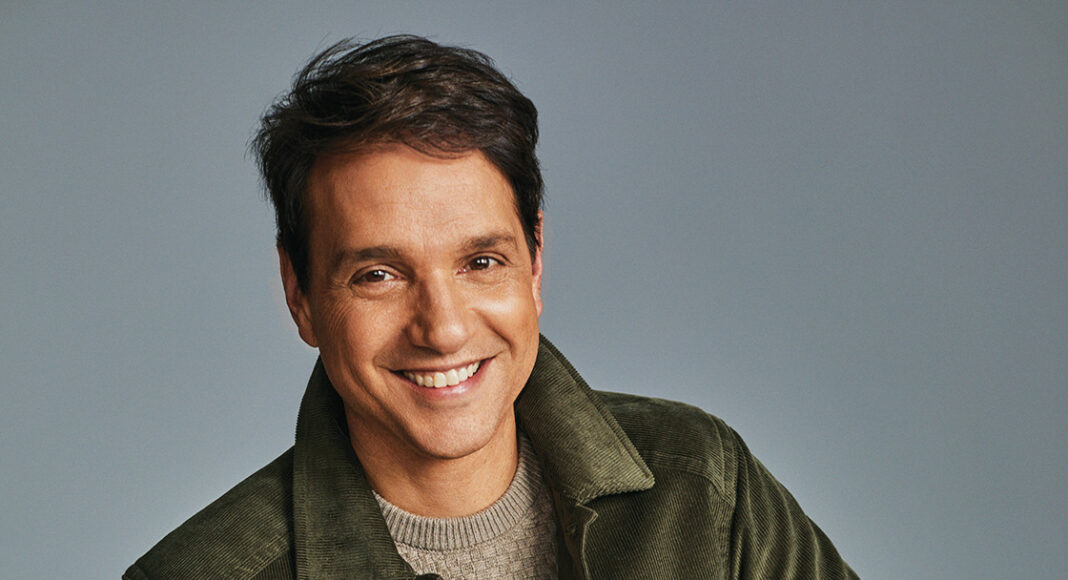There have been hundreds of bad sequels to good films. Most remain a stain on the legacy of the original forever, while a few later develop their own cult followings for one reason or another. But only a handful ever get the kind of genuine cultural redemption that The Karate Kid Part 3 has found thanks to the hit series Cobra Kai.
For those who have not immersed themselves in the “Miyagiverse”—named after Pat Morita’s character Mr. Miyagi, the handyman martial-arts master who trained Ralph Macchio’s Daniel LaRusso in The Karate Kid and its sequels—The Karate Kid Part 3 was released in 1989, five years after the original blockbuster from director John G. Avildsen, and three years after the well-received and successful Karate Kid Part 2. Part 3 basically recycled the plot of the first movie (Avildsen later called it “a horrible imitation of the original”), with vicious Cobra Kai sensei John Kreese (Martin Kove) enlisting the help of Terry Silver (Thomas Ian Griffin) and Mike Barnes (Sean Kanan) to try to get revenge on Daniel and Miyagi. Meanwhile, Daniel develops a very platonic friendship with Jessica Andrews—her love-interest angle was changed due to the age of the actress, Robyn Lively, who was 16 during filming. The film landed with a thud, was critically reviled and earned Razzie nominations for Worst Picture, Worst Director, Worst Screenplay and Worst Actor.
And yet, when all of those core characters from Part 3 returned for season 4 and 5 of Cobra Kai, fans loved it. That’s the power of the unique cultural phenomenon that the show has become since it debuted on YouTube Red in 2018, before moving to Netflix. Cobra Kai creators Josh Heald, Jon Hurwitz and Hayden Schlossberg have dug deep into the original films to build the mythology of the Miyagiverse. Macchio, who returned to the role of Daniel for the show, says Part 3 is—to his surprise—a crucial part of that world-building.
“These writers love Karate Kid Part 3,” Macchio tells me in a phone interview. “I debate with them all the time—I still think it’s a bad movie. It is a bad move. But even the shortcomings bear fruit in the future with this franchise, that’s how blessed it’s been. Cobra Kai has its own tone that is probably more similar to what Karate Kid Part 3 was, just with better storytelling. It’s a little broader, you know? Everything has little elements of superhero, if not total superhero.”
Of course, the original film gave us quotes like “Strike hard, strike fast, no mercy,” “Sweep the leg” and “Get him a body bag” (a line which has a darkly ironic payoff in Cobra Kai).
“So it’s still larger than life,” Macchio says. “Miyagi rubs his hands together and fixes all injuries. But that’s wish fulfillment, that’s just great storytelling. But there’s still the groundedness, and the heart, which is peppered throughout Cobra Kai. And that’s a credit to the writers, to not let go of that. It’s really interesting to have a series where you’re going so big, then you have these heart-and-soul moments of fathers and sons and mentorship and bullying and overcoming obstacles and single parenting. And that is what the Karate Kid themes were.”
Besides being the star at its center, Macchio has also become the unofficial historian of the Miyagiverse with his new book Waxing On: The Karate Kid and Me, which comes out this week. He proves himself the right person for the job, mixing interesting stories from his four-decade-long history with the franchise with a very clear-eyed view of what has aged well and what hasn’t.
For instance, he expresses how proud he is of the film for being the first mainstream movie to address the internment of Japanese Americans in World War II, and calls learning about that dark chapter in American history “one of the richest experiences I had while making this film.”
His co-star Morita, the son of Japanese immigrants, was incarcerated along with his family at the Gila River camp in Arizona, and the Tule Lake War Relocation Center in California.
What comes through above all else over the course of the book is the warmth and tight bond he feels with the extended Karate Kid family of actors, directors and crew he’s worked with over the years.
“It’s because I look back at it and realize the impact of this little movie from 1984 that struck such a chord, and has continued to be relevant—even, you know, in the late ’90s, the 2000s, they did the SNL sketches and the parodies. It never went away,” says Macchio. “And obviously Cobra Kai, it’s incredible how big it is. It’s tough not to embrace all of that and know that every instrument in the orchestra helped make the music. That’s how I look at it.”
Ralph Macchio will discuss his new book “Waxing On: The Karate Kid and Me” in conversation with Steve Palopoli at 7pm on Friday, Oct. 21, at the Rio Theatre, 1205 Soquel Ave. in Santa Cruz. The event is sold out. bookshopsantacruz.com.














